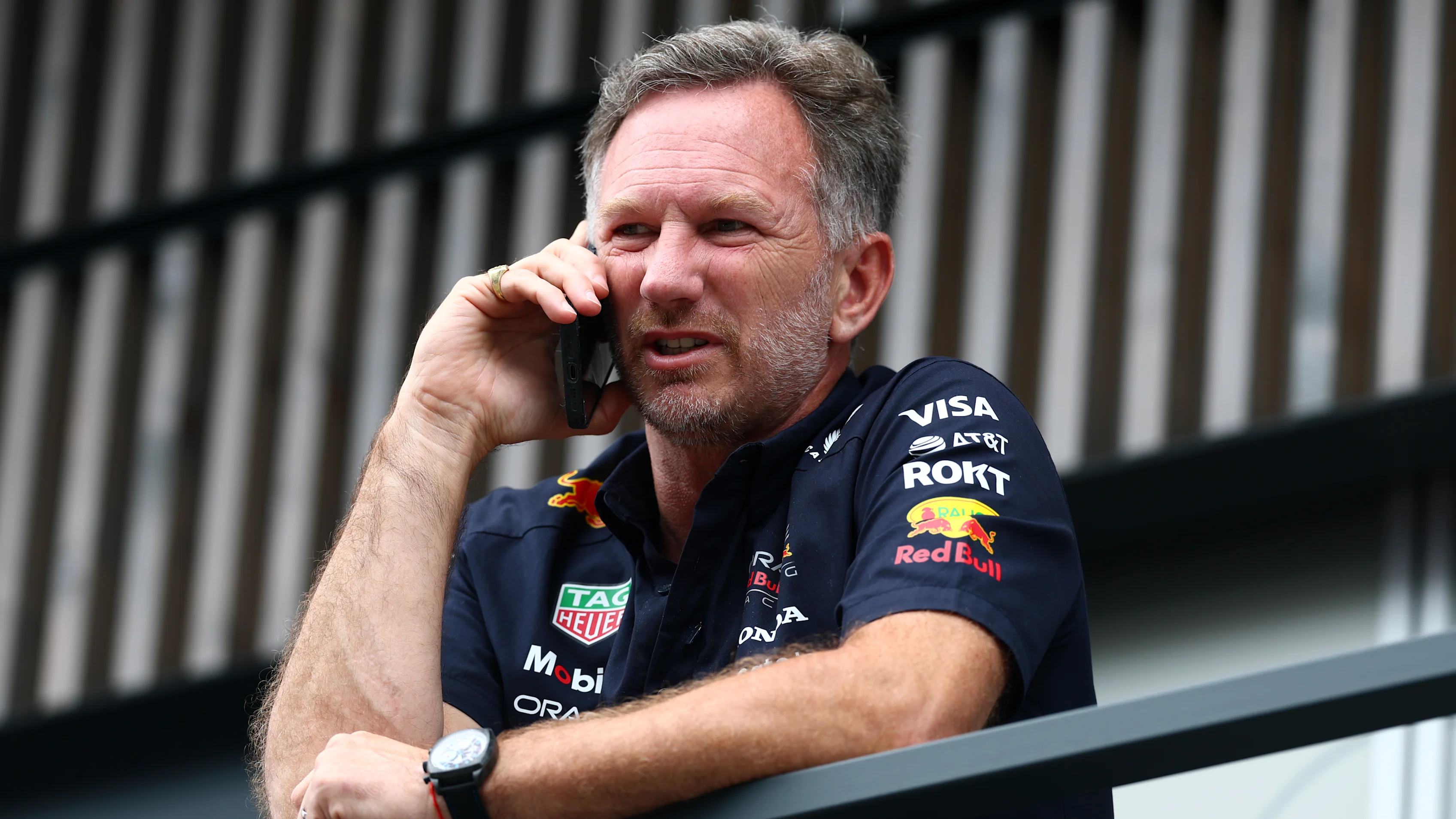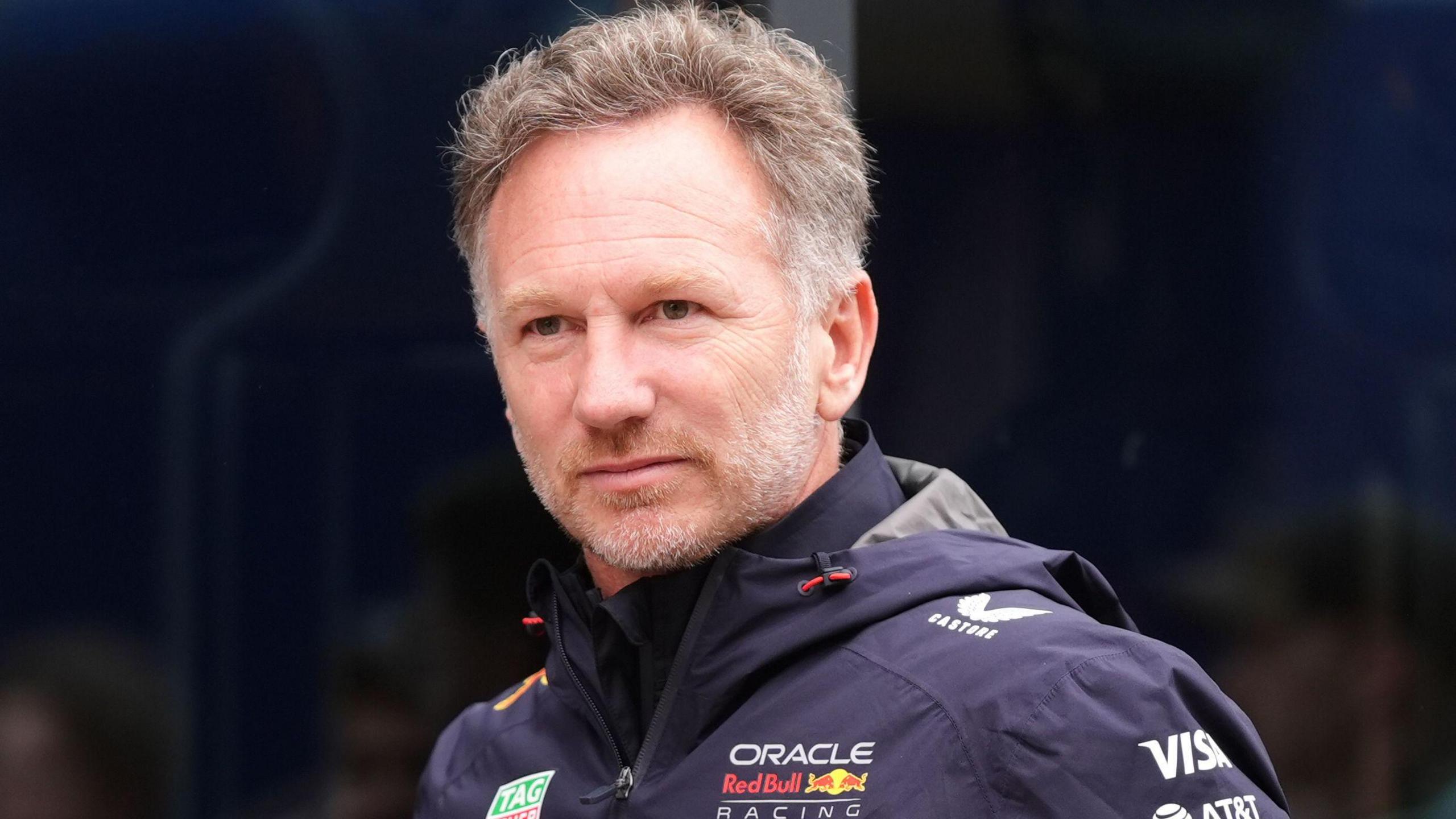In a stunning announcement that has sent shockwaves through the Formula 1 community, Red Bull Racing has confirmed the sudden departure of its long-serving Team Principal, Christian Horner. This news, revealed on Wednesday, July 9, 2025, marks the end of an era for the team that has seen immense success under Horner’s leadership. The unexpected development has triggered intense speculation about Red Bull Racing’s future, the reasons behind Horner’s exit, and the broader impact on the Formula 1 landscape. As fans and experts react, the motorsport world braces for a major shift.
The announcement of Christian Horner’s departure has sent ripples not just within Red Bull Racing but across the entire Formula 1 paddock. Horner has been a fixture in the sport for over two decades, and his leadership style has often been cited as a key factor in Red Bull’s sustained success. His ability to manage high-pressure situations, negotiate with drivers, and work closely with engineers has set a benchmark for team principals worldwide.
One of the most remarkable aspects of Horner’s tenure was his talent development. He played a pivotal role in nurturing young drivers, most notably Max Verstappen, who has become a dominant force in the sport. Horner’s mentorship and faith in young talent have been instrumental in shaping Red Bull’s identity as a team that combines youthful energy with technical excellence.
The timing of Horner’s exit, amid a fiercely competitive season, adds an extra layer of complexity for Red Bull Racing. The team must now maintain focus and cohesion while undergoing a significant leadership transition. How the new principal manages this period will be critical in determining whether Red Bull can continue to challenge for championships or if rivals seize the opportunity to gain ground.
Leadership transitions in Formula 1 teams are often fraught with challenges. The incoming principal will need to quickly build trust with drivers, engineers, and support staff while maintaining the strategic vision that Horner helped establish. Balancing continuity with innovation will be key to sustaining Red Bull’s competitive edge in an ever-evolving sport.

Christian Horner’s Legacy: A Transformational Leader at Red Bull Racing
Christian Horner’s journey with Red Bull Racing began in 2005, when he became the youngest team principal in Formula 1. Over the next two decades, Horner transformed Red Bull from a mid-field team into a dominant force, securing multiple Constructors’ and Drivers’ Championships. His leadership was pivotal in nurturing talents, building a cohesive team environment, and steering Red Bull to the top of the sport.
Under Horner, Red Bull Racing clinched four consecutive Drivers’ and Constructors’ titles from 2010 to 2013 and continued to be a championship contender year after year. His strategic vision, calm decision-making, and ability to inspire those around him earned him widespread admiration. Horner’s departure leaves a significant void, raising questions about who will take over and how the team will navigate this transition.
Reasons Behind the Departure: Speculation and Official Statements
Red Bull Racing’s official announcement attributed Horner’s departure to “personal reasons,” emphasizing mutual respect and gratitude for his contributions. However, within the F1 community, there is speculation about a combination of factors, including internal disagreements over team direction, evolving leadership dynamics, and Horner’s own desire to pursue new opportunities.
The timing of the announcement, during a fiercely competitive 2025 season, has fueled rumors of behind-the-scenes tensions. Reports suggest possible differences between Horner and other senior figures regarding driver line-up decisions and technical strategies. Despite the speculation, Horner expressed pride in Red Bull’s achievements and confidence in the team’s future.
Impact on Red Bull Racing and Formula 1 Landscape
Horner’s exit is set to reshape Red Bull Racing’s organizational structure and competitive outlook. The team now faces the challenge of appointing a successor capable of maintaining momentum and managing the complex demands of modern Formula 1. Potential candidates include experienced F1 managers and rising stars within Red Bull’s own ranks.
For Formula 1 as a whole, Horner’s departure signals a shift in the power dynamics. Red Bull’s dominance in recent seasons has been a defining feature of the sport, and a change in leadership could create opportunities for rivals like Mercedes, Ferrari, and McLaren. Fans and analysts will be watching closely to see how this transition affects race strategies, driver performances, and championship battles.
Future Prospects: What Lies Ahead for Christian Horner and Red Bull Racing
While Horner’s next move remains undisclosed, there is speculation that he may explore roles in motorsport consultancy, team ownership, or even ventures outside racing. His expertise and reputation make him a valuable figure in the world of sports and business. Meanwhile, Red Bull Racing has reaffirmed its commitment to excellence and is conducting a thorough search for a new leader who can uphold the team’s values and ambitions.
The announcement has prompted a wave of tributes from drivers, teams, and fans, celebrating Horner’s remarkable career. As Red Bull Racing prepares for the next phase, the focus will be on stability, resilience, and continuing the legacy that Horner helped create.
Christian Horner’s Departure: End of an Era at Red Bull Racing
Christian Horner’s exit is a pivotal moment in Red Bull Racing’s history. His leadership was synonymous with the team’s rise to prominence, and his departure invites reflection on two decades of innovation, triumph, and transformation. The team now faces the task of preserving this legacy while adapting to new leadership.
Behind the Scenes: Unpacking the Reasons for Horner’s Exit
Though the official statements remain diplomatic, the motorsport community is abuzz with theories about the underlying causes of Horner’s departure. From strategic disagreements to personal aspirations, understanding these factors is key to grasping the full impact on Red Bull Racing’s future.

Red Bull Racing’s Next Chapter: Leadership Transition and Team Strategy
The search for Horner’s successor is underway, with the team evaluating internal and external candidates. This leadership change will influence Red Bull’s approach to car development, race tactics, and driver management, shaping their trajectory in the fiercely competitive 2025 season and beyond.
Christian Horner’s Legacy and the Future of Formula 1
Horner’s influence extends beyond Red Bull Racing, having shaped modern Formula 1 through his strategic insights and leadership style. His departure opens a new chapter not only for the team but for the sport, signaling potential shifts in competitive dynamics and governance.
Christian Horner’s exit is expected to have a ripple effect on Red Bull Racing’s relationships with its sponsors and technical partners. Over the years, Horner established strong ties with key stakeholders, ensuring stable funding and fostering innovative collaborations that kept Red Bull at the forefront of technology. The new leadership will need to reassure partners of the team’s continued commitment to excellence and adaptability in a rapidly changing motorsport environment.
The morale within the Red Bull Racing team is another critical factor during this transition. Horner was known for his open-door policy and ability to motivate team members at all levels. Maintaining high morale and a unified sense of purpose will be essential as the team navigates new leadership and the pressures of ongoing competition. Regular communication and a clear vision from the incoming principal can help sustain the team’s drive for success.
The departure also prompts reflection on the evolving nature of Formula 1 team management. The modern team principal must balance sporting, technical, and commercial demands while adapting to new regulations and technologies. Horner’s multifaceted approach set a high standard, and his successor will be measured against his legacy of adaptability and strategic foresight.
Looking ahead, the Formula 1 world will be watching Red Bull Racing’s next moves with keen interest. The team’s ability to manage this pivotal change—while maintaining performance on the track—will serve as a case study in leadership transition within elite sports. Whether Red Bull can uphold its winning tradition or faces new challenges will depend on the choices made in the coming weeks and months, shaping the next chapter of their storied journey.

Conclusion: A Defining Moment for Red Bull Racing and Christian Horner
Christian Horner’s departure from Red Bull Racing is a defining moment that reverberates across Formula 1. While it closes a remarkable chapter, it also presents opportunities for renewal and growth. As the team and Horner embark on separate paths, the motorsport world watches closely, anticipating the next thrilling developments in this high-stakes saga.
Christian Horner’s departure also raises questions about the future direction of Red Bull Racing’s technical and commercial strategies. The team has been known for its aggressive approach to car development and marketing, often pushing boundaries to gain advantages. Whether the new leadership will maintain this philosophy or steer the team in a different direction remains to be seen.
The broader Formula 1 community is watching closely to see how this change affects the sport’s dynamics. Red Bull Racing’s dominance has been a defining storyline in recent years, and any shift in their fortunes could reshape the championship battle. Competitors will be eager to exploit any signs of instability, making this a critical juncture for the team.
In addition to the on-track implications, Horner’s departure may influence the sport’s governance and commercial relationships. As a respected figure, Horner has been involved in discussions beyond team management, including regulatory matters and promotional activities. His absence could alter the balance of influence within Formula 1’s leadership circles.
Finally, Christian Horner’s legacy will be measured not only by trophies but by the culture he cultivated at Red Bull Racing. His emphasis on teamwork, resilience, and innovation has left an indelible mark. As he steps away, the challenge for Red Bull will be to honor this legacy while forging a new path forward in one of the world’s most demanding sports.
Follow: Formula 1

